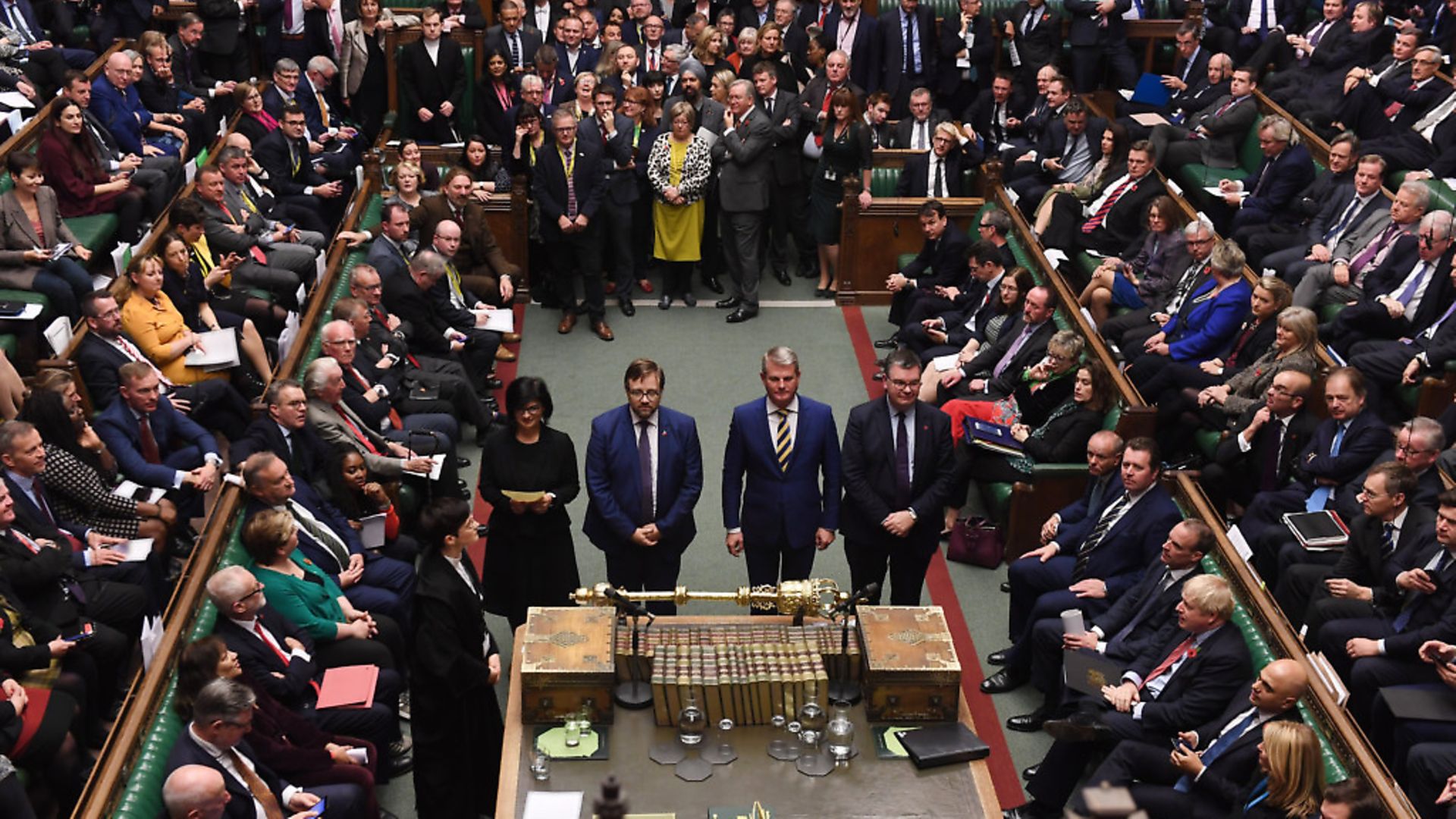
Constitutional experts have set out their proposals for a virtual parliament which will enable MPs and peers to hold Boris Johnson’s government to account during the coronavirus.
Professor Meg Russell, from University College London, and Dr Ruth Fox, from the Hansard Society think- tank, said any changes must be temporary and should not be used to shift power away from parliament to the government.
Prof Russell, director of the constitution unit at UCL, and Dr Fox suggested that ‘as far as possible’ MPs should stay away from Westminster ‘in the interests of safety and to set a national example’.
Commons speaker Sir Lindsay Hoyle has already suggested that MPs should be allowed to participate in proceedings virtually if the ‘physical presence of members, or too many members, in the palace is not appropriate’.
The suggestions from Prof Russell and Dr Fox include:
– The introduction of electronic voting;
– The ability to have three or four urgent questions, lasting up to 15 minutes each, every sitting day;
– Giving MPs the chance to ask follow-up questions at Prime Minister’s Questions;
– An increased frequency in appearances by the prime minister, or whoever is deputising for him as he recovers from coronavirus, before the Liaison Committee;
– The possible introduction of a Coronavirus Select Committee.
The pair acknowledged that a shift to a virtual parliament may present difficulties for media coverage.
But they argued that ‘if live broadcast is temporarily compromised, that may be a necessary price to pay – and committees have already experimented with delayed broadcasts and video clips’.
Prof Russell said: ‘There is clearly a widespread desire to get parliament up and running again, and members will be keen to co-operate and will hopefully be flexible, accepting that virtual working will require some compromises.
‘But it’s really, really important that the Government does not just present members with a fait accompli – there needs to be proper consultation, and any changes should be strictly time-limited, with opportunities for feedback and regular review.’
Dr Fox said: ‘Adversarial party politics rightly takes a back seat in a time of national crisis, but parliament’s collective responsibility to hold the executive to account is enduring.
‘Extraordinary arrangements are needed if Parliament is to go fully ‘virtual’.
‘But any new arrangements must ensure fair representation for all members and parties; and the crisis and parliament’s response to it should not become a pretext to shift power even further towards the executive.’









